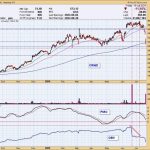In today’s interconnected world, the impact of a single failure can reverberate through the complex web of global commerce, disrupting supply chains, economies, and the daily lives of individuals worldwide. As demonstrated by the recent disruption in the global shipping industry caused by the blockage of the Suez Canal by the Ever Given container ship, a seemingly isolated incident can have far-reaching consequences.
The Suez Canal is a vital artery of international trade, providing a crucial shortcut for vessels traveling between Europe and Asia. The blockage of this key waterway for six days in March 2021 brought a significant portion of global maritime traffic to a standstill, disrupting the flow of goods and causing a ripple effect across multiple industries.
One of the immediate impacts of the Suez Canal blockage was felt in the shipping industry, with hundreds of vessels stranded or forced to reroute, leading to delays in the delivery of goods and a backlog of ships waiting to pass through the canal. The resulting congestion not only affected the timely delivery of goods but also led to increased shipping costs, as companies were forced to find alternative routes and modes of transport to mitigate the delays.
The repercussions of the Suez Canal blockage were also felt beyond the shipping industry, affecting global supply chains and exacerbating existing challenges in logistics and inventory management. The disruption highlighted the fragility of just-in-time supply chains, where any disruption in the flow of goods can quickly escalate into a crisis, impacting businesses, consumers, and economies.
Moreover, the incident shed light on the vulnerabilities inherent in the global trading system, where a single point of failure can have cascading effects across multiple sectors and regions. The reliance on a limited number of critical chokepoints, such as the Suez Canal, underscores the need for diversified transportation networks and contingency plans to ensure the resilience of global trade in the face of unforeseen events.
The Suez Canal blockage serves as a cautionary tale, illustrating how a single failure can expose the interconnected nature of the global economy and the reliance of businesses on the smooth functioning of supply chains. In an era characterized by increasing complexity and interdependence, the ability to anticipate and mitigate the risks associated with such disruptions is paramount for ensuring the stability and sustainability of global commerce.
As stakeholders in the global economy grapple with the aftermath of the Suez Canal incident, the imperative to build resilience, redundancy, and flexibility into supply chains has never been more pressing. By learning from this episode and taking proactive measures to address vulnerabilities, businesses can better prepare for future disruptions and help safeguard the continuity of global commerce in an ever-changing world.



